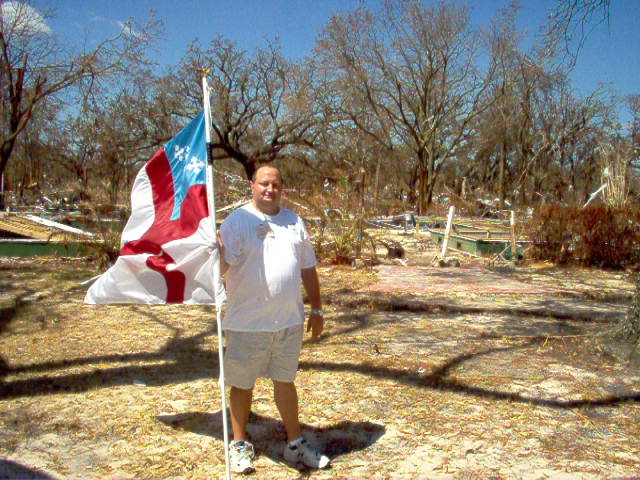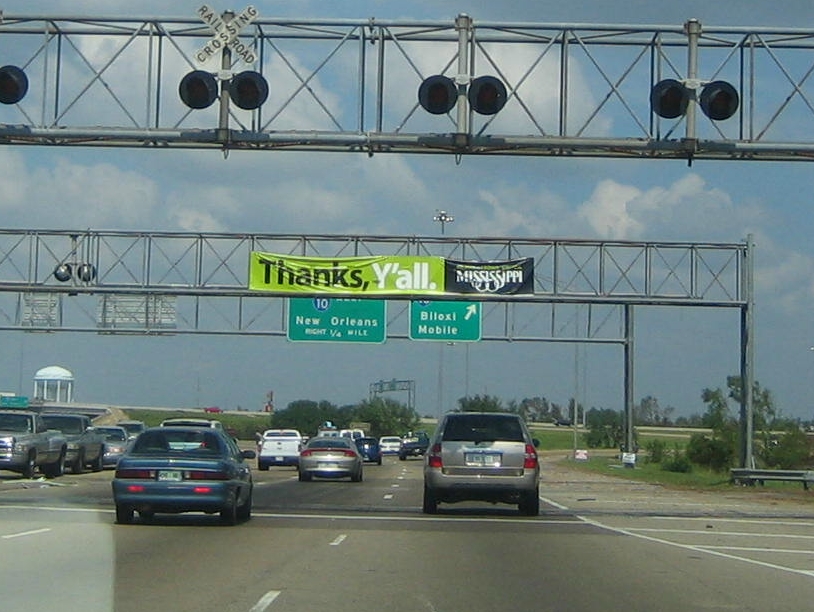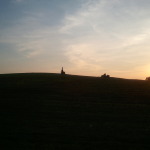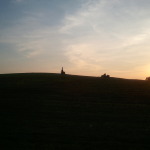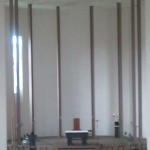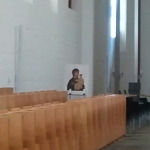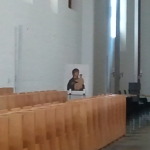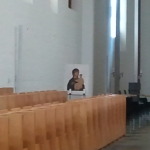Idol Worship at General Convention
There is some movement, at long last, in the Episcopal church to take a good, long, and honest look at how we govern ourselves, how General Convention is run and what goes on there, and how we can streamline our church to focus on mission, on reaching others with the Good News of Christ, on offering the special things our church can offer to those seeking to know God, and on how to be servants to people in need. These conversations are springing up all over the place, and they seem to be causing great consternation in some circles.
What follows are just some rambling observations. None of this is meant to be personal, although I am sure some will take it that way. I don’t know Bonnie Anderson, the President of the House of Deputies (POTHOD) on a personal level, although I have heard her talk about her own faith journey (an impressive and moving story) and I have also experienced her being border-line rude to a gathering of clergy (we made the horrible mistake of being ordained people). I know she is admired by many and I am sure she works incredibly hard, I just think she is misguided and in many ways represents the heart of the problem, in my opinion.
I first attended General Convention (GC) in 2006 as a clergy alternate. It was pretty overwhelming. It’s massive first of all. There are over 800 deputies on the floor (half clergy and half lay people) with at least 400 alternates sitting on the sidelines watching. The legislative process is mind boggling at times. Committees meet all week to discuss resolutions assigned to them (resolutions can come from deputies, bishops, CCABs (commissions, committees, agencies, and boards of the church) and from dioceses (by way of Diocesan convention resolutions) and provinces (regional groupings of diocese). The POTHOD appoints committee chairs and vice chairs as well as all committee members. Only deputies (no alternates) serve on committees. This freed me up to attend committee meetings whenever they were discussing something of interest to me. The problem is – SO many of the resolutions are such a waste of time. They have to do with things that really have nothing to do with the mission of the church or they are political in nature and will have no impact on policy. Sometimes we really think more highly of our place in the world than we should. Why does the Episcopal Church spend money on a lobbyist in Washington? We cannot possibly compete with other big money lobbyists and I cannot imagine we have any influence whatsoever on government policy. Spend that money on church plants where we CAN make a difference in people’s lives.
I digress….
Watching how the legislative process on the floor of the HoD is handled was interesting. Wiley veterans know how to work the system, there is a group of deputies always ready to race to a microphone and “Call the Question” whenever debate heats up or their particular agenda is in danger of being defeated. I have more to say about this in a bit. But there is no doubt that being politically and legislatively astute is a big plus to get things done on the floor of the HoD. Somehow that bothers me. And it works for both “sides” of controversial issues, so this is not a knock on any one group, it just seems a strange way for the church to make decisions.
I often find myself searching really hard for Jesus at GC.
The House of Deputies is the “senior” house, as the House of Bishops didn’t join in the legislative process until after a few GCs. The HoD folks love to remind us of that fact all the time. There is undoubtedly a core group of leaders in the HoD, especially the POTHOD, who distrust Bishops and the HoB. In fact in her opening remarks to GC in 2009, President Anderson mentioned how well the Episcopal church did in the early days before we even had any bishops on American soil…a pretty overt statement of how she feels about bishops (We don’t need no stinking bishops!). There is great distrust of bishops exercising “too much” power, and often Executive Council seems to be a real contest between the Presiding Bishop (PB) and POTHOD, often firing off conflicting statements about the role and mission of EC and church leadership. It really seems the POTHOD is circling the wagons and continues to drive a stake between the two houses. Most unfortunate.
We all know of the long and weary battles our church has fought and continues to fight over issues of sexuality, which spill into disagreements regarding interpretation of Scripture, ongoing (or not) revelation, etc. We have become known as that church that fights all the time, and CNN and others love to show us at our worst. Meanwhile, we have a crisis on our hands – our numbers are dwindling remarkably, we are an aging church and many of our parishes are facing severe financial difficulties. Yet we are called, always, to be people of faith and hope, people sent to proclaim the Good News of Christ, people called to serve others and to love the way Jesus loves us….yet….
In 2009 the Committee on the State of the Church had put together a very eye opening report for the Blue Book given to all GC deputies. The report spoke the truth and called the church to radical rethinking to turn this old battleship around. While scary in part, I was encouraged that we were willing to face the music, and hoped this report would be a rallying cry for us at GC 09. So when I heard the POTHOD was calling for two hours of meeting as a “Committee of the Whole” on the floor of the house, I was certain it was to begin the conversation around this report and what changes we need to make as a church. Wrong. It was was again all about sex. This despite the fact that the vast majority of those who opposed the more progressive stance on human sexuality had since either fled the church or were no longer interested in fighting it out at GC, we were called by our President to talk, again, about sex.
Also at the 2009 GC, a dedicated group of people interested in changing the canons to include language that would allow transgendered candidates access to the ordination process. They had a well oiled machine in place, with really excellent speakers testifying at various committee hearings. The proposed resolution (C061) read: “Title III, Canon 1, Sec. 2 of the Canons of the Episcopal Church is hereby amended to read as follows: No person shall be denied access to the discernment process for any ministry, lay or ordained, in this Church because of race, color, ethnic origin, national origin, sex, marital status, sexual orientation, gender identity and expression, disabilities or age, except as otherwise provided by these Canons. No right to licensing, ordination, or election is hereby established.” The gender identity and expression clause was the change to the canon and what all the organized testimony was about. The proposed change was sent to the House of Bishops for their concurrence. I was at the HoB when this was debated. The Bishops took a different approach – instead of adding one more group to the canon to whom we cannot discriminate, they changed the wording to simply say that ALL members have a right to the ordination process and would not be discriminated against. Their language was: “Title III, Canon 1, Sec. 2 of the Canons of the Episcopal Church is hereby amended to read as follows: No person All baptized persons shall be denied have full access to the discernment process for any ministry in this Church, lay or ordained, in this Church except as otherwise provided by these Canons. No person shall be denied access or have his or her discernment process terminatedbecause of race, color, ethnic origin, national origin, sex, marital status, sexual orientation, gender identity or expression, disabilities or age, except as otherwise provided by these Canons. No right to licensing, ordination, or election is hereby established.”
Notice the difference. After years and years of different groups fighting for the right to the ordination process, the Bishops changed the game and said all baptized persons have full access. All. It was actually a spiritual moment in the HoB as they realized the message they were sending to the church.
Their excitement was short lived. As soon as this amended resolution was returned to the HoD, shockingly to me the opposition to it was strong. The chair of the committee on World Mission, The Rev. Gay Jennings (who is a wonderful person and was very helpful to us post-Katrina) opposed the change, as did several other speakers. I was stunned! The bottom line – they didn’t trust that “all means all”. As I attempted to get to the microphone to speak in favor of the amendment (waiting behind one speaker), of course someone called the question, debate was terminated, and the amended version was defeated. Defeated knowing full well that the change the transgender folks had worked so hard to include would now NOT be in the Canon, as this was the last session and impossible to send anything back to the HoB for concurrence. So instead of changing the language to where we now emphatically say all the baptized, which has been a rallying cry for those long discriminated against, would have full access to the process, the HoD said that wasn’t good enough! I really couldn’t believe it, but in talking to some folks afterwards they expressed that changing the canon that way would mean special interest groups representing minorities would no longer have a reason to come to GC and campaign for their causes, so they were opposed to the change. I hope that’s not true but if there is any truth in it, it speaks volumes as to what GC has become. But worse than that is the distinct message that the HoD, especially it’s leaders, just do not trust Bishops. Very sad.
So as GC 2012 approaches we are hearing a lot of rumblings about change. Bishop Stacy Sauls, our new Chief Operating Officer, presented some ideas about structural change at the last House of Bishops meeting. Included in his proposal were suggestions for the forming of a task force and perhaps even a special GC to address strictly those concerns. What needs to happen to our Constitution and Canons, for instance? In his presentation he called on conversations at all levels of the church with all people in the church (not JUST Bishops!) and suggested resolutions that could be sent forth from Diocesan Conventions. I liked that approach very much, because having the conversation at the Diocesan Convention level would allow MANY more people, lay and clergy, to join in, to be empowered, and to feel they actually have a voice in all this. Despite what many “GC people” will tell you, in many ways the membership of the HoD is not reflective of our church membership – it’s hard to find people willing to run for deputy, for instance, due to the time and financial requirements to do so. We limit the pool, obviously, by the length of GC and the size of it. So pushing these conversations down to the Diocesan level allows some brilliant and dedicated lay folks and clergy to participate and to be on the front line, so to speak, for changes that may be forthcoming.
Of course, once word got out that Bishop Sauls had made this presentation, the majority of our leaders on the HoD side were outraged that he had done so with the HoB without first (or additionally) presenting to the Deputies, or the EC. While a few folks on the HoB/D listserv talked about the content of the presentation, once it was published on the web, most wanted instead to talk about him doing so to the Bishops alone. The POTHOD was the leader of that charge.
How I would have much rather seen some conversation about the content from our leadership. Instead the obviously highly offended POTHOD claimed that work was already being done by, saying: “In my opening remarks to the Executive Council in February, 2011, I called for Executive Council’s Joint Standing Committee on Governance and Administration for Mission to review the work of various standing commissions, committees and task forces and coordinate the efforts by these groups who are working on ‘structural change proposals for the Church’. As a result, Executive Council, by resolution, directed the Standing Commission on the Structure of the Church, which has a canonical mandate to ‘study and make recommendations concerning the structure of the General Convention and of the Church’, to hold an in-person consultation with representatives of these groups.”
While these committees and commissions are in place with a “call” to do this work, it seems that the work of CCABs goes largely disregarded (see above about the last time a report was presented on the State of the Church). The bigger problem is the pace of the work. In fact, the most terrifying words I heard President Anderson say, in the same letter from September of this year, were: “we need to slow down”.
Good grief! SLOW DOWN??? Is there any wonder Bishop Sauls and others are pushing for a radical approach to the changes we need to make to focus way more on mission, than on governance.
However, systems tend to work hard to maintain the status quo. Recently President Anderson has been making statements about how wonderful our governance is and how our governance has made possible all these great things in our church.
I still am looking for Jesus. Governance, General Convention, the Executive Council in some ways have become idols for many. Seems like there is a commandment about that somewhere.
Recently the POTHOD restarted the official message board for deputies and first alternates. Over several weeks a discussion question or topic was posted and responses called for. With over 800 deputies and 100 or so 1st alternates, you would think the board would be overrun with comments. But it seems only a handful of deputies are participating (and usually it’s the same ones for each question). Maybe it’s because the topics are things like the history of General Convention and did the writers of the U.S. Constitution also write our church constitution, and the history of the House of Deputies! zzzzzzzzz
I find it interesting that the Presiding Bishop talks about how our governance can hinder mission and the POTHOD’s immediate reaction is just the opposite – governance at all cost!
Maybe another response would be something like “I am intrigued and willing to listen to all parties regarding structural changes that will help promote the gospel of Jesus Christ while including all at the table in leadership and participation…..and while I believe firmly in the way things work now and in our governance and polity, evidence shows some changes are necessary for this church to thrive in the 21st century.” That would have given me more hope. Instead a member of the Executive Committee has stated we need to increase the budget of the POTHOD to that of the Presiding Bishop, which I think completely confuses the roles each are given in our church. I didn’t think we elected President Anderson to be a spokesperson for the church (and she’s not the first POTHOD to act that way), instead her role is to preside over the HoD in session (a role she is really good at), appoint committee members and chairs for GC and for interim bodies, and serve as vice chair of the Executive Committee (the PB is the chair). We should adequately fund those functions, of course. If I am mistaken over the canonical role of the POTHOD I am sure some reading this will correct me, but it appears to me that the job has been “self expanded” over time and a new look at what exactly the POTHOD should be doing and how to fund it may warrant some attention before the time comes to elect the next one.
Bishop Sauls highlights in his presentation that there are at least 75 CCABs and 42 Church Center offices and departments! We have bloat that mimics the federal government! He proposes a much flatter system of authority than the pyramid system we currently have (with GC on top all the way down to the people in the pews who must feel completely out of touch). He proposes radically altering funding so that mission is the main piece of the pie, and we shrink the operational (administrative) side down considerably. In his proposal this would require LESS money from the dioceses to the church center, allowing more funds to be used at the local level for mission and ministry.
And Bishop Sauls, to his credit, included comments about the current POTHOD, saying none of this was personal or directed at her, how he admires her and knows she loves Jesus, and how she has always cooperated fully with him whenever he asked anything of her.
I know I have been critical of the POTHOD in this post, but I would agree with the Bishop in his comments about her. However, her reaction, and that of many of the “old timers” who run GC and the EC has been textbook. If it wasn’t sad, it would be funny.
Mission MUST win over governance. Change must take place. We need a more nimble church, focused on the great good news, ready to plant new churches and to reach the millions in our communities who have no faith community yet are yearning for some way to connect and to know that they too are loved. The Episcopal Church can do this. I know we can….and that’s why I keep running for Deputy to GC, because I want to be a part of change for the better.
On Saturday I will join with a group of folks from across the church to discuss structural changes and how we can best implement them. Stay tuned…..and keep praying….

